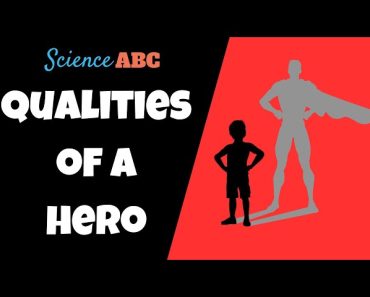Extroverts have the stereotypical makings of a leader, but research has found that introverts can make great leaders too. Introverted leaders can allow their proactive employees more freedom to work through ideas, and their creativity and conscientiousness can make for more thoughtful decisions. In fields such as education, introverts are found to be better leaders.
How cool are Google and Netflix workspaces! Open floor designs, glass walls, slides, popcorn machines and long tables in cafeterias encourage collaboration and connection. When we look at the office design of major tech giants, it screams collaboration. We are brought up with this belief that to be a successful leader, you need to be a people person—an extrovert. You cannot shy away in your cubicle, plug in your Airpods with your hoodie up and immerse yourself in work.

However, with nearly half of the population being introverted, it’s not easy for everyone to always mingle with their colleagues. Does that mean if you’re an introvert, you won’t be as successful? Let’s find out!
Recommended Video for you:
What Is Introversion?
Introverts are considered shy, lost in their world, and at times, antisocial. That one guy at the office party who is just waiting to go home, but is pushed by his extrovert colleagues to stay later, is an introvert. That stereotype, however, is so far from the truth!
Carl Jung threw light on introversion in the 1920s. According to him, introverts are people who look inward, rather than outward, and they tend to think deeply before speaking. Introverts give great attention to detail, are analytical, and are great at organization. Aren’t these traits important in the corporate world?

Introversion And Creativity
We live in a complex world that requires creative problem-solving. According to Gregory Fiest, a prominent psychologist, creativity and introversion have a high correlation. In other words, many of the most creative minds in history have been introverts. J.K. Rowling, Albert Einstein, Bill Gates, Michael Jackson, Nikola Tesla, Rosa Parks, and Abraham Lincoln all have one thing in common—introversion.

Constant collaboration and brainstorming are not the only pathways to creativity. Creativity can also come from solitude and silence, which introverts prefer.
Office spaces with quiet zones could help accommodate introverts’ style of working. Along with gender, cultural and racial diversity, corporations need to work on psychological diversity.
Introverts As Leaders
By and large, when we think of CEOs, we think of larger-than-life, celebrity-like personalities that run companies, but let’s look at how introverts perform as CEOs.
According to a study conducted by Grant, Gino and Hofmann (2011), introverted leaders produced greater group performance when their employees were mainly proactive, whereas extroverted leaders produced better performance with passive employees. Weird, right? Introverts’ good listening skills make their employees feel heard. Such leaders are also less threatened by their coworkers and have a lower need for dominance.
According to another study on leadership and organizational success, Collins (2001) found that a company needs a ‘Level Five Leader’. This is a leader who is not loud or larger than life, but is rather shy and fearless, all at the same time. This is someone who is humble and has a professional will, while at the same time is not fond of public attention. Such qualities are usually demonstrated by introverted CEOs.

Personality And Work Environments
It is also very important to consider the work atmosphere before hiring leaders.
Extroverted leaders are more suited to a dynamic work environment, like the military, whereas introverted leaders are a better match for stable work environments, such as schools. Dynamic work environments require charisma to motivate people.
In a stable work environment, such as schools, which works on supportive structures to aid students and teachers in learning, introverts make for better leaders. There is no corporate ladder to climb and less competition in education. Thus, principals who are introverted may be a better fit as leaders in education.

Introversion And Academic Success
Let’s take a step back from becoming world leaders and look at the process of creating leaders: schools. Your training to enter into your career starts with learning about the field.
Of the Big Five personality traits, conscientiousness, a trait more prevalent in introverts, was a strong predictor of academic success. A conscientious student will have better self-regulation of behavior and goal attainment. Conscientiousness also has a positive correlation with GPA in universities.
However, introversion and extroversion play a role in students selecting their majors. Introverts would prefer humanities and natural sciences, whereas extroverts opt for economics, sports sciences and law. This shows that knowing your personality can be a big help in determining your success in life by choosing the correct field of work.
Conclusion

The intent of this article is to shed light on the strengths of introverts in leadership roles. Just like the nature vs. nurture debate, there is never one right answer to introversion vs. extroversion. They are both important spectrums of personalities, and they both play an important role in leadership. Since extroverted leaders are the norm, the purpose of this article is to highlight the strengths that introverted leaders do possess.
I hope that by reading this article, my fellow introverts won’t feel the need to be more outspoken or change who they are. With increased cultural, racial, and gender inclusion, it’s about time for workspaces to look at personality inclusion as well. We live in a world where everything from office design to leadership recruitment favor extroversion. Introverts have a lot to offer in leadership, but they need to be provided with the right environment to thrive in their own way.
References (click to expand)
- (2019) How Introverts Function in the Creative Workplace. The University of South Carolina
- (2013) The Introverted Leader: Examining the Role of Personality and .... Florida International University
- (2019) Theory and Evidence on Extraversion and ... - NYU Stern. The New York University Leonard N. Stern School of Business












